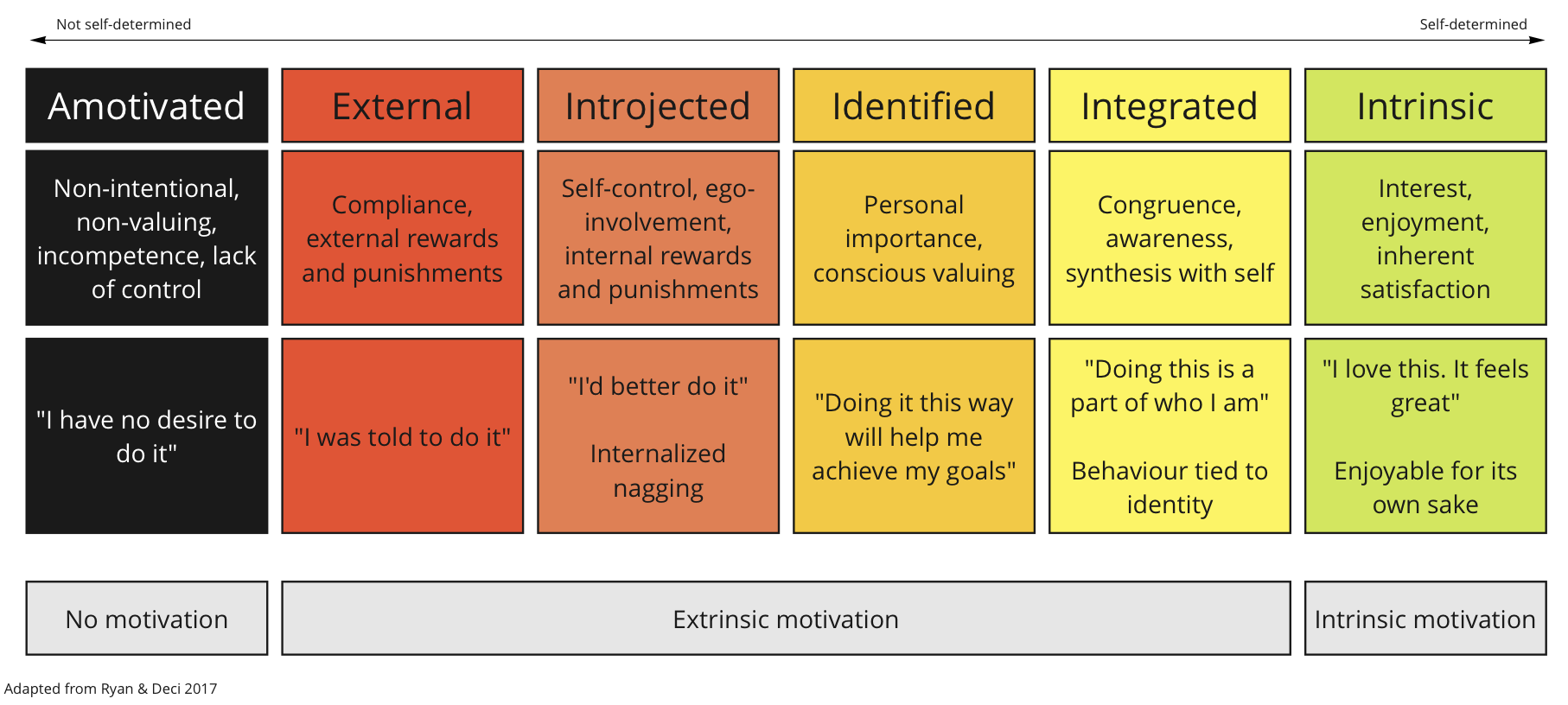I occassionally hear from managers that their people just aren’t motivated to do anything. This is rarely the complete story as these people are clearly motivated to do many things, just perhaps not those things that the manager wants them to do.
For the rest of this article, I’m going to assume that the people really are unmotivated and this isn’t just a perception problem, which would be addressed in very different ways.
Let’s look back at the Self-Determination Theory1 motivation model from an earlier article.

When I hear these complaints, we’re usually looking at the very far left of the model, into amotivation.
Self-Determination Theory1 tells us that amotivation can take three different forms and understanding which is at play, will affect how we approach the situation.
1. A belief that they are unable to achieve outcomes.
In this case, they believe that they are unable to achieve any meaningful outcomes, so why bother? It’s hard to feel any level of motivation if we don’t think we can actually complete anything. There are two different variations on this one:
- They may lack the competence. They don’t have the skills or the knowledge to complete the work.
- They may believe that the environment around them would make it impossible to complete the work. This second one is more common than you might expect, particularly in larger companies. There are so many obstacles to getting things done that people can feel defeated before they even begin.
2. A lack of interest, relevance, or value
Nobody wants to do work that has no value. People remain unmotivated when their actions have no meaning or interest for them, particularly when it fails to provide the basic human needs of competence, autonomy, and relatedness.
None of these are boolean values either - each can be more or less important. The new thing could be valuable but if there are other things in play that are much more valuable, I may have no interest in working on this.
3. A motivated non-action or oppositional behaviour
This last case isn’t actually an absence of motivation but rather a sufficient motivation to explicitly not do the work. This could be to defy demands that would get in the way of the basic needs of autonomy or relatedness.
Where to go from here?
- If someone is feeling that they lack the competence then they need support to build those skills. Perhaps training, or coaching, or pairing with other people, or formalized practice. Give them the support they need.
- If someone feels that universal helplessness because the environment around them prevents anything from getting done then that environment needs to be fixed. Are there ways to get work through? Can we restructure how the organization is laid out or remove dependencies or roadblocks?
- If there is a lack of interest then either find ways to make it interesting or find a way for that work to go to someone else, who is interested. No matter how boring you might find something, there’s someone who enjoys doing it. Can we find that person?
- If the work isn’t relevant or valuable enough then why are we doing it right now? Think hard about whether it needs to be done now (or at all).
- If we have oppositional behaviour then consider why that is. There may well be good reasons for it and we should address those.
By the time we’re looking at complete amotivation, it’s worth considering how we even got here. Something is happening that we probably should have identified and fixed earlier.

